myflockandi – Back British Farming
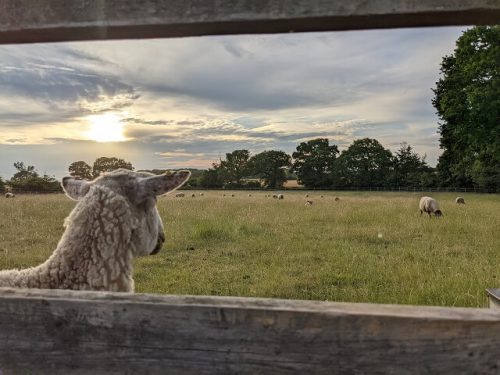
As part of our campaign to Back British Farming we sit down with farmers on our rural community blog, and chat about all things farming. In this blog we spoke with Victoria (@myflockandi), who is an English farmer. Victoria helped us understand her journey to becoming a farmer, the livestock he keeps, advice for those thinking of getting into farming and how she learnt to farm…
My family has farming in its heritage many generations back, my maternal grandmother’s surname was Pigram, so I’m guessing at some point this related to pig and sheep farming but I fell into farming quite by accident. My father in law owned a flock of fifty sheep and my journey started with leaning over the fence making cooing noises at all the cute lambs, with absolutely no idea of how they arrived and the work that went on throughout the year to get to this point. When my constant curiosity was observed, this led to me being promoted to the pet lamb bottle feeder, which I now understand why this was a job they happily passed on to a naive enthusiastic young person. For me though it was a huge responsibility mixing the milk and keeping those lambs alive. It never even entered my head that they wouldn’t stay on the farm forever. I duly got very attached to them all but six months later was to be my first very big, very emotional lesson in sheep farming!
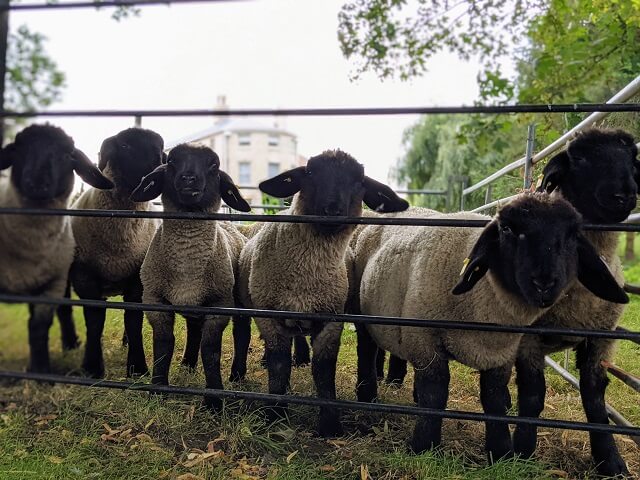
When I first stepped on to the farm where I now live I had all the gear and no idea. To be honest I didn’t even have the right gear. I wore what I thought was right but the importance was put on what I looked like rather than the practicalities of the brands I had chosen to wear. Face fully done up with make up complimented by sweet sickly and overpowering perfume, you can imagine. Not a city girl but a girl that had been brought up at boarding school surrounded by a fence I wasn’t allowed to cross. To then returning home at holidays to an RAF base, surrounded by another fence I wasn’t allowed to cross. So while boarding school gave me independence, growing up with that kind of control made me somewhat sheltered to the realities of the world.
I laugh at the girl I was back then, she would be horrified to see me now with only a dried up mascara and a bit of tinted moisturiser that’s most definitely the wrong shade for me. Fast forward to the present me, married, three kids, gundogs (no sheepdog unfortunately), chickens and sheep and my life is a million miles away from what it was. Much of it comes with age and motherhood but also the humbling work that farming has given me. No-one asked me to do all that I do now, I wanted to. I found a passion in being a shepherd so I ran with it and it changed my life, my perspective on the world and made me a more rounded person.
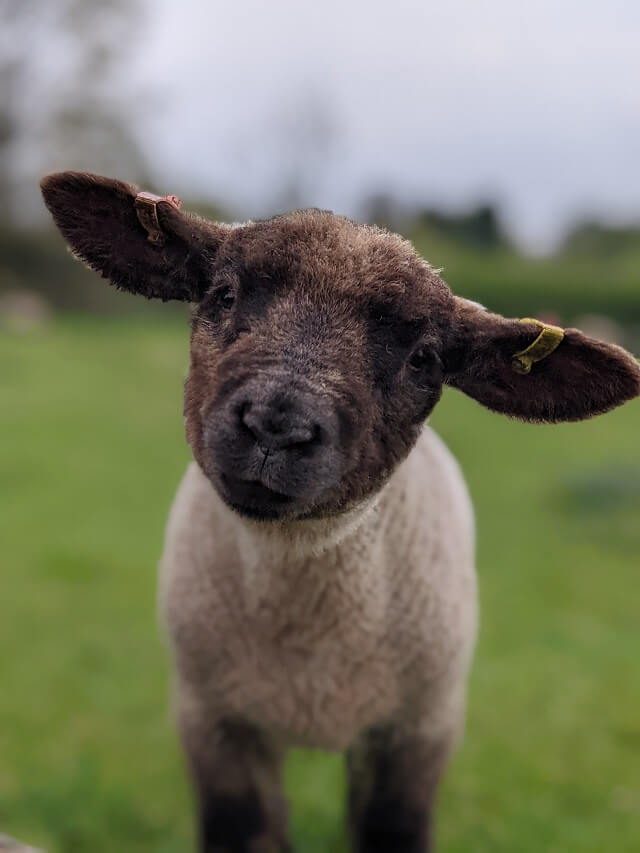
I was hooked after I helped with my first lambing, when it was obvious how much I loved it, not long after that I had sole responsibility for the flock. If I’m honest I think they were pleased to pass on the torch. Shepherding was not their first country love, they would much rather have been rearing pheasants and partridges and enjoying the shooting season.
A lesson I learnt early on is the commitment a shepherd must have to their flock. If rearing animals for whatever purpose is the aim, then there must be a passion for it, farming is not something that can be done half heartedly, it takes hard work and dedication and if you don’t love what you’re doing then ultimately it’s not going to work.
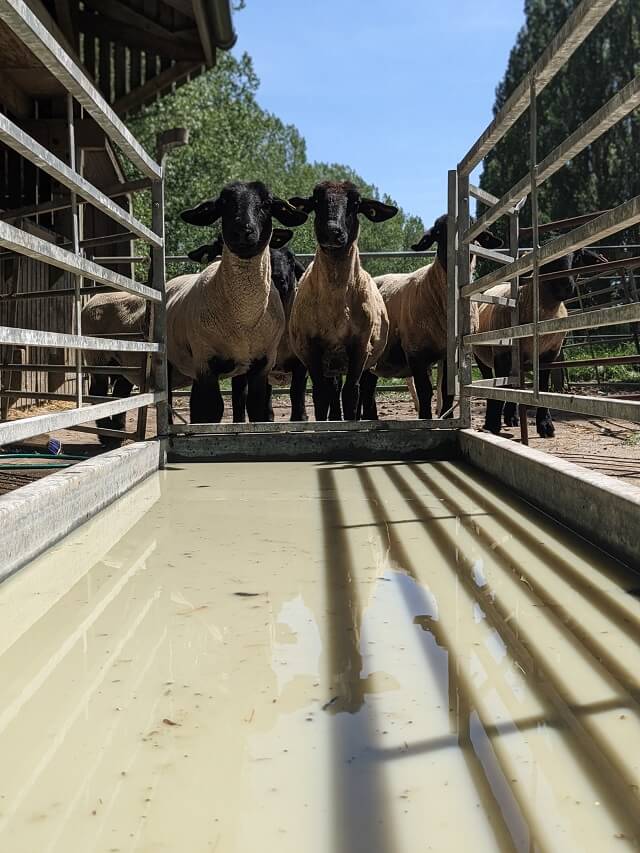
Be prepared to be a farmer
From my small farming enterprise, I sometimes feel I don’t have the right to call myself a farmer because I only have a small flock of sheep, but farmers do come in all shapes and sizes. It would be my dream to own a much larger farm where I could run more livestock, cut and bale my own hay and grow crops but for now this is where I am and this is what I’ve learnt. Farming is a rewarding career but it is a hard one, you have to be prepared to put in the work. It’s early mornings and late nights, long hours and a lot of adjusting the plans you have meticulously made to counteract any freak nature events, the ever changing weather or escaped animals.
Good animal husbandry is imperative to the health of a flock. The animals rely on you to be fed and watered, keep their bedding area clean and dry and to be constantly on the lookout for their wellbeing. Livestock health can go down hill quickly so getting to know your animals so you can instantly see whether they are out of sorts, is an important trait of a shepherd or stockperson. Being prepared for Mother Nature to throw everything at you when you least expect it is a big part of the annual planning, never assume the weather each year will follow suit to the seasons. It will, more often than not, disrupt all your well thought out plans. Flooding, droughts, storms, remembering that the weather has a knock on effect to worm burdens, parasites appearing at times they shouldn’t, pneumonia, lack of forage, all of which you will have to counteract.
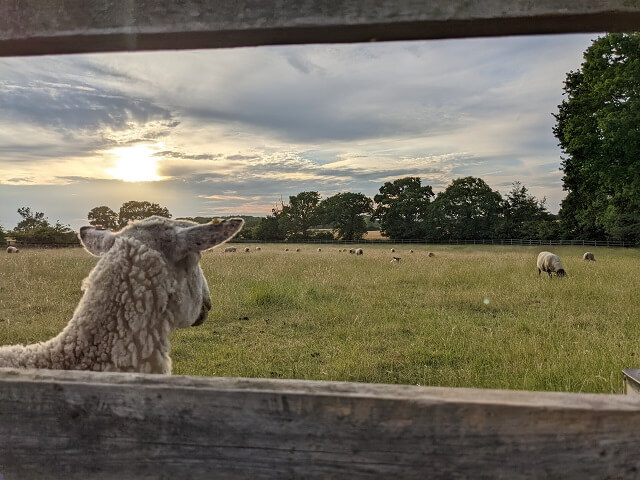
One of the toughest lessons I have learnt is that I can be as prepared as I like, I can vaccinate the entire flock but still lose lambs to a disease I have vaccinated against. I can drench or bolus for worms or vitamins but there will still be a reason why some sheep fall. Sometimes things just don’t go your way no matter how much you do to prevent it, this is just part of working with nature. It’s about accepting that you have done all you can and sometimes Mother Nature will ultimately get her way.
It’s also about accepting that it’s ok to have emotions when losses happen. I know there is a stereotype for farmers, male or female, to not care and just move on, livestock dies etc but we’re all human and it’s not okay to brush it off and pretend you don’t feel anything. If that is what you do and you don’t have an emotional response, then farming livestock isn’t for you. You have to have empathy to do this job well. Humanity dictates that there will be an emotional response to a lost animal you have cared for, so feel it, accept it and then move on.

Learning how to farm
Just last week I was discussing with another farmer, older than myself, the importance that is being put on going to university and learning all the theory behind farming. While I would never discourage this route, I do believe there is some value to it but I believe it is only a part of learning how to farm. I didn’t learn to farm through a classroom, I was never much good at school, I didn’t like authority, I didn’t like being told what to do, I always flourished when I could figure something out on my own. I may have got it wrong a few times but I had the tenacity to try again until I got it right. When it came to lambing I was thrown in at the deep end, left on my own one lambing and had no clue what to do. I had to use my common sense, the little knowledge I had and google (don’t google stuff about farming by the way, there are way too many opinions out there that can lead you in the wrong direction!) I learnt so much of what to do, what not to do and how to conquer the fear of being on my own in the lambing shed with no-one to turn to but each year brings new experiences. I would never be arrogant enough to say that just because I have been doing this for over ten years that I know everything there is to know. A lot of it you simply cannot teach in a classroom. You can’t teach the body language of the animals or the feel of the presentation of a lamb. The gut feeling that something just isn’t right. You can’t read in a textbook and fully understand the full spectrum of emotions that will fuel your decisions in the moment. Getting experience on a farm is where you will learn the most, the most valuable lessons are learnt in the real world.
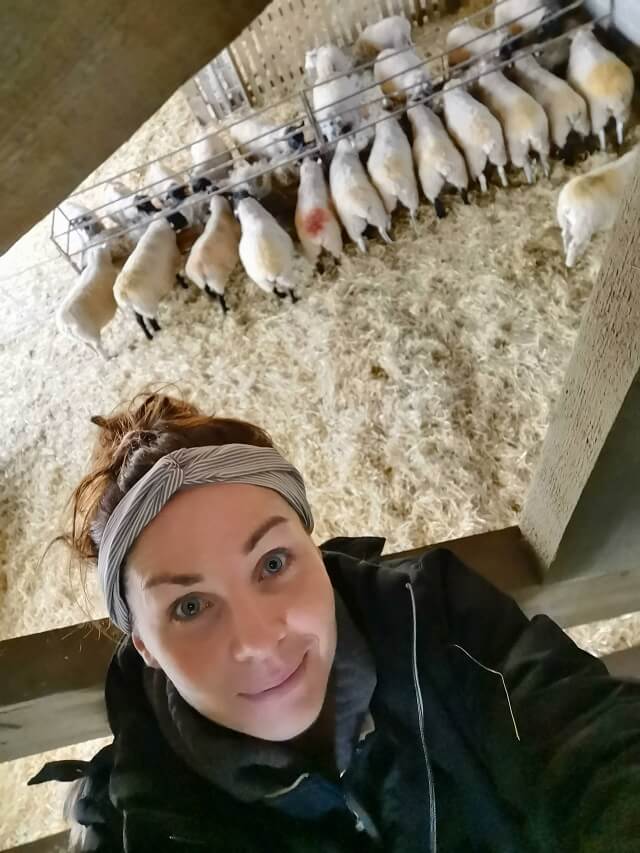
Breeding for wool
I have a great passion for wool. I don’t knit, I don’t crochet and I can’t really sew but I enlisted the help of my mother so I could create products where wool would shine. Products where the use of current plastics can be replaced with wool. My aim is mainly to show people that wool is undervalued and is a sustainable option that we should be utilising. While I only have a small flock of sheep, much smaller now than it used to be, I have decided to step away from solely breeding pedigree Suffolks and I now wish to focus on breeding mainly for wool. I sold the majority of my pedigree bloodlines and have bought in a breed that is quite the other end of the spectrum to the Suffolk. A small, native hill breed, the Badger Face Black Welsh Mountain. These come in two types, the Torduu which are mainly white with black stripes and the Torwen which are black with white stripes. The Torwen is now on the Rare Breed Society Watchlist as their numbers are so low. Of course, me being me, I’m always there to support the underdog and go against the grain so this was my choice.
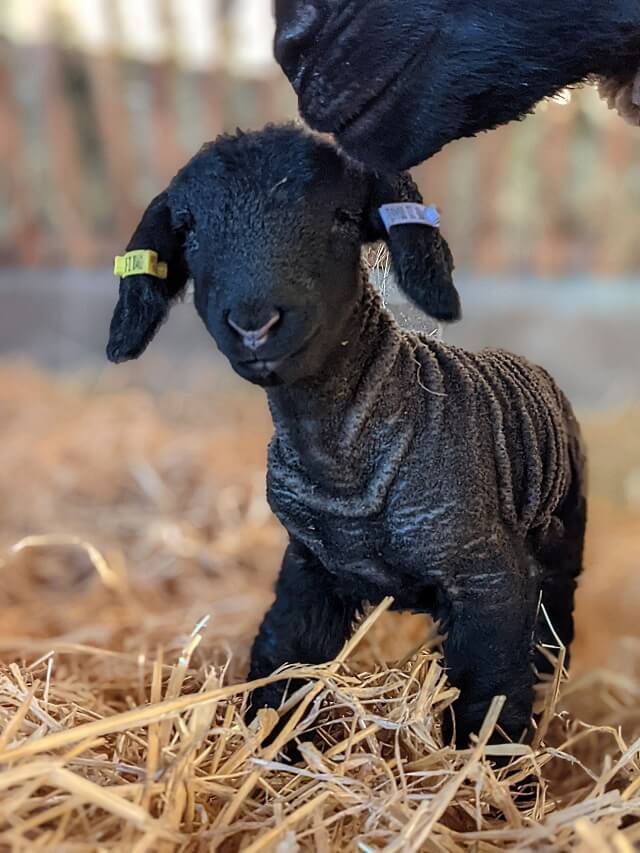
The strong attachments I form to each member of my flock has never really left me, I can’t help it, I try not to but it just takes over which always makes market day difficult. I needed to find a way to still have my sheep but to shift the focus to something that wouldn’t cause me as much turmoil. Breeding for wool to be used for the stuffing of my home and garden products and felted back rugs means I then have the best of both worlds. My plan is to now keep each and every lamb until their first shear. I will assess their fleece to see if I can make something from it, if I can’t then they will go for hogget meat. Admittedly probably not a commercially satisfying plan and one that will no doubt send me into the red financially, but if it means I still get to shepherd and highlight the power of wool, and if I only make enough to cover the flock’s feed and medicines then that’s fine with me.
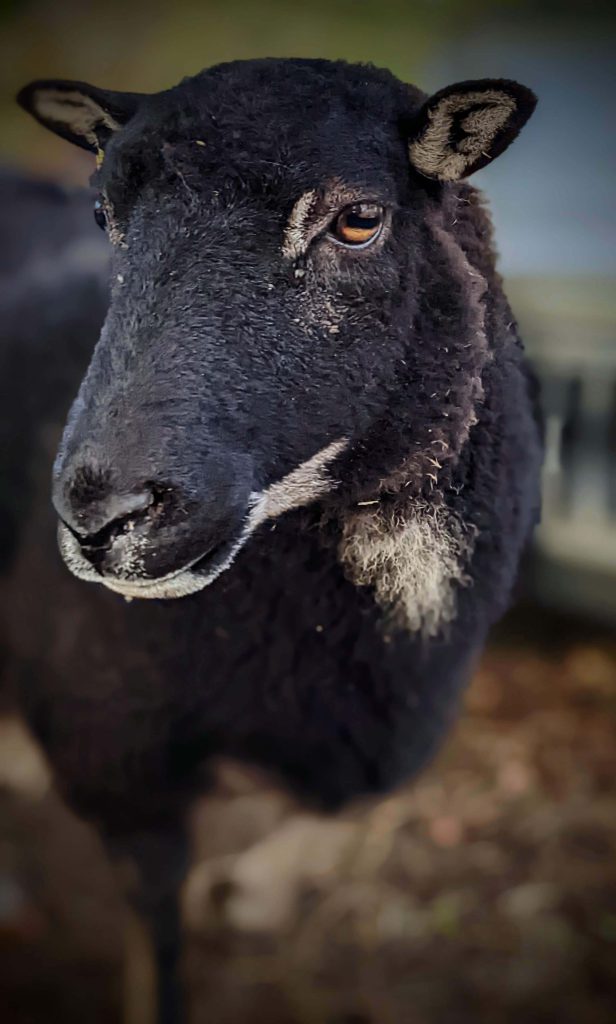
Farming on your own terms
Farming on a large or small scale has many challenges but on my smaller scale it is about ensuring each member of my flock earns their keep. It must be as productive and profitable as possible. Whether they admit it or not, every shepherd has the odd pet lamb or two that always seems to miss the culling pen and stays for just one more year. These are usually wethers (castrated males) or ewe lambs that would not ordinarily have been kept back for breeding but they are allowed to stay rent free.
For me, now that I am making the change to a new breed I need to ensure that lambs that are produced have the desired fleece for turning into rugs or a good enough quality fleece to use as filling for my home and garden products. If a lamb does not possess either of these qualities then they will be sold into the food chain.

Farming is also about your individuality. Yes, there are particular ways that some things must be managed, but it’s really important to not compare what you do to other farms. Often while you spend so many days on your own land it’s good to get out and go and visit other farms because you will quickly realise that while you may feel what you are doing is not good enough you will see that everyone does things differently and as long as you are working with what you have, within your means and the animals welfare is top of your agenda, you’re doing just fine.
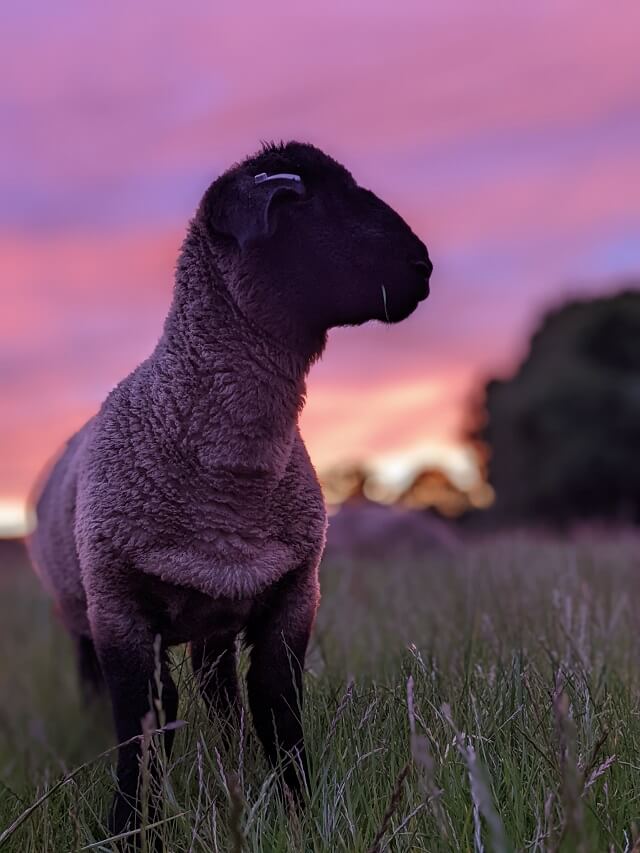
Don’t compare a smallholder to a commercial farmer or a cattle herd to a sheep flock, it’s not a fair comparison and whether you are new to farming or have generations of experience, there is always something new to learn. You’ll often find that those who have farmed for years are reluctant to try new things but diversity and new blood coming through into agriculture is not a bad thing. Finding new ways to do old things is key to the evolution of farming.
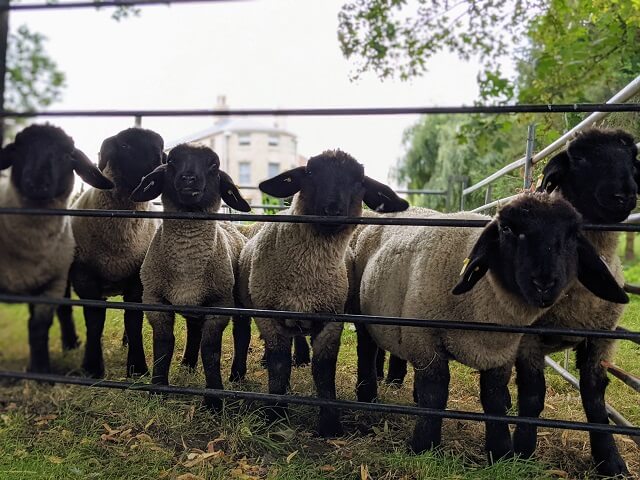
If you’re a farmer and you’d like to contribute in our campaign to raise awareness for the incredible work in British agriculture, please drop us a DM on Instagram – @aplanrural







